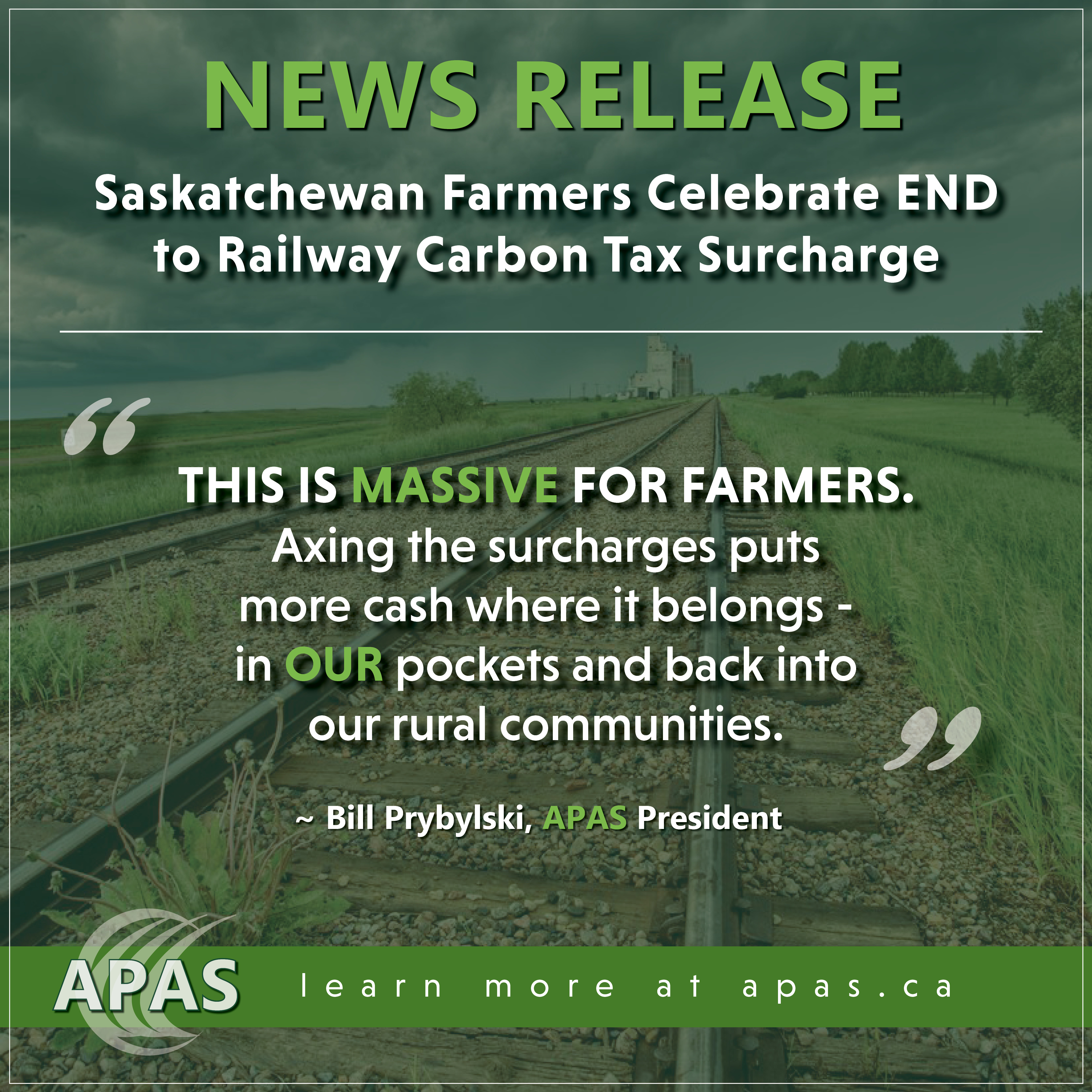REGINA, SK – The Agricultural Producers Association of Saskatchewan (APAS) today celebrates the positive steps taken by CN and CPKC to eliminate their rail carbon tax surcharges, effective April 1, 2025, for Alberta, Saskatchewan, Manitoba, Ontario, and New Brunswick. This development follows the federal government’s elimination of the consumer carbon tax (fuel levy), a move enthusiastically supported by APAS.
"This is massive for farmers!" APAS President, Bill Prybylski, passionately declared. "Axing the surcharges puts more cash where it belongs - in our pockets and back into our rural communities. It's a huge lift, especially now, with trade uncertainty,” Prybylski elaborated. “Between 2019 and 2024, Saskatchewan farmers have been saddled with about $200 million in carbon surcharges by the railways. We've fought tirelessly for relief, and seeing it finally come to an end is incredibly rewarding. Eliminating these surcharges not only ensures farmers feel the benefit of scrapping the federal consumer carbon tax but also keeps us competitive on the global stage.”
APAS highlights the critical nature of this success, pointing out that railway fuel surcharges were set to cost Saskatchewan farmers an estimated $80 million this year alone, underlining the significance of this decision.
APAS welcomes the changes but remains vigilant about the still-active Low Carbon Fuel Standard (LCFS) in British Columbia, which might increase shipping costs for grain from Saskatchewan to BC Ports by raising railway fuel costs. Additionally, following the removal of the federal consumer fuel levy, APAS advocates for transparency and detailed analysis of how the federal Output-Based Pricing System (OBPS) impacts farm input costs.
“Moving forward, it is crucial that we have clarity on the implications and application of the continued provincial carbon pricing in British Columbia on rail freight costs for our producers,” added Prybylski. “We also need the federal government to ensure complete transparency around the OBPS and its impact on our sector as climate policies evolve, reinforcing the need for close collaboration with agriculture to avoid placing undue burdens on food producers.
”The successful removal of the carbon tax is a testament to the depth of APAS’s policy work, focused advocacy and its relentless efforts to support the interests of farm and ranch families.
For more information, please contact: APAS Communications at Communications@apas.ca




